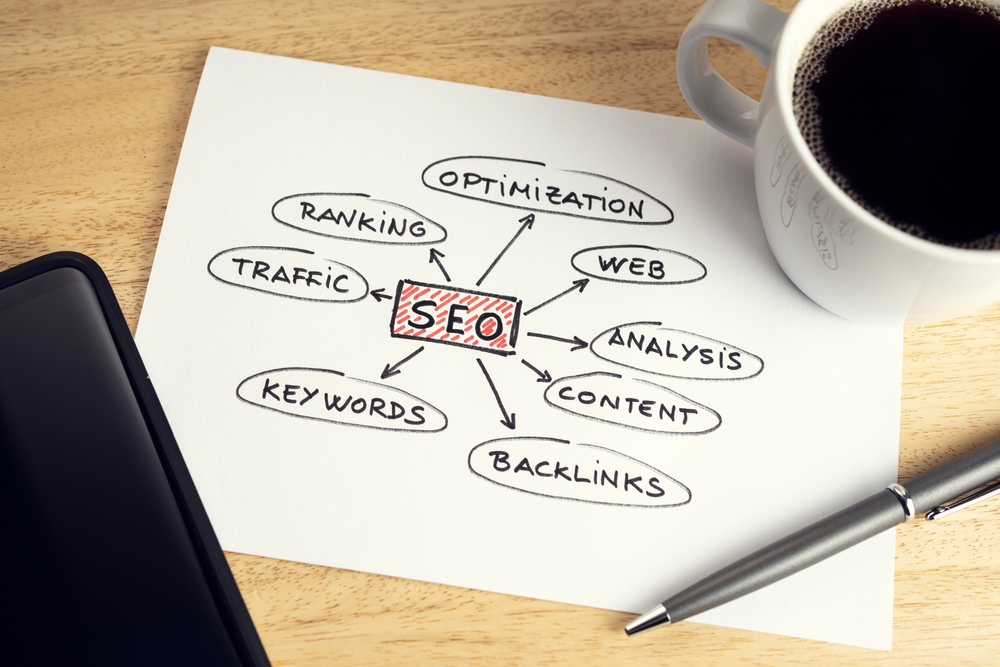
Boost Your Website's Ranking: Top SEO & Link Building Tips

Introduction:
In today's digital landscape, having a strong online presence is crucial for businesses to thrive. Search Engine Optimization (SEO) and link building play a vital role in boosting website rankings, increasing organic traffic, and ultimately, driving more conversions. In this article, we will delve into some tried and tested SEO (search engine optimization) and link building techniques that can significantly improve your website's visibility and help you outrank the competition.
1. Quality Content Creation and Optimization:
When it comes to SEO , content is king. Search engines prioritize websites that provide valuable, relevant, and well-optimized content for users. To enhance your website's visibility, focus on creating high-quality, engaging content that addresses your target audience's needs.
It is also essential to optimize your content for relevant keywords. By conducting thorough keyword research, you can identify the terms and phrases your target audience is searching for. Incorporate these keywords strategically into your content, including headings, subheadings, meta tags, and image alt texts. However, ensure that your keyword usage is natural and doesn't compromise the readability or user experience.
2. On-Page SEM/SEO Techniques:
On-page SEO/SEM techniques involve optimizing various elements on your website to improve its visibility on search engine result pages (SERPs). There are several key factors to consider:
a. Title Tags and Meta Descriptions:Ensure that every page on your website has a unique and descriptive title tag and meta description. These HTML elements provide a concise summary of your webpage's content and help search engines understand its relevance to search queries.
b. URL Structure:
Create clean and descriptive URLs that include relevant keywords. Avoid using long strings of numbers or irrelevant characters. A well-structured URL makes it easier for search engines and users to understand the page's content.
c. Header Tags (H1, H2, etc.):
Using HTML header tags allows search engines to determine the hierarchy and importance of the content on your webpage. Ensure your primary keyword is included in the H1 tag, while using H2, H3, and subsequent tags for subheadings and supporting content.
d. Internal Linking:
Strategically linking different pages within your website helps search engines understand the structure and relationship between your content. By including relevant internal links, you can guide both users and search engines to important pages, increasing their visibility and authority.
3. Building High-Quality Backlinks:
Link building remains a fundamental aspect of SEO (or SEM) . Search engines consider backlinks as votes of confidence from other websites, establishing your website's authority and credibility. However, it's crucial to focus on quality over quantity. Here are some effective strategies for acquiring high-quality backlinks:
a. Guest Blogging:
Contributing guest articles to reputable websites in your industry can earn you valuable backlinks. Ensure that your guest posts provide unique and informative content, placing your website in front of a wider audience and enhancing your credibility.
b. Influencer Outreach:
Collaborating with influencers or industry experts can help you gain exposure, drive traffic, and obtain quality backlinks. Network with influential individuals through guest appearances, expert interviews, or joint content creation initiatives.
c. Content Promotion:
Create compelling, shareable content that naturally attracts backlinks. Promote your content through social media platforms, email marketing, and outreach efforts. The more people who find your content valuable, the higher the chances of acquiring natural backlinks.
d. Broken Link Building:
Identify broken links on relevant websites in your industry, preferably those with high authority. Reach out to the website owners, suggesting your content to replace the broken links. This strategy offers value to both parties by helping them fix their broken links while earning you a quality backlink.
4. Mobile-Friendly and User-Focused Design:
With an increasing number of users accessing websites through mobile devices, having a mobile-friendly design is critical for SEO success. Search engines prioritize websites that provide an optimal user experience across different devices. Here's what you can do:
a. Responsive Design:
Ensure your website is built with a responsive design, automatically adjusting its layout and content based on the user's device. This eliminates the need for separate mobile and desktop versions of your website and ensures consistent user experience across all platforms.
b. Page Loading Speed:
Optimize your website's loading speed to provide a better user experience. Compress images, enable browser caching, and minify CSS and JavaScript files. Faster loading times lead to better engagement and reduced bounce rates, positively affecting your search rankings.
5. Frequently Asked Questions (FAQs):
Q1. How long does it take to see results with SEO?A1. SEO results vary depending on various factors such as website age, competition, and the level of optimization. Generally, it can take several months to start seeing significant improvements in rankings and organic traffic.
Q2. Is link building the only way to improve SEO?
A2. While link building is crucial, it is not the only aspect of SEO. Content creation, on-page optimization, website usability, and technical SEO factors all contribute to your overall SEO success.
Q3. Can I optimize my website for multiple keywords?
A3. Yes, it is possible to target multiple keywords for different pages on your website. Ensure that each page is well-optimized for a specific set of keywords to enhance its relevance to search queries.
Q4. Are social media signals important for SEO?
A4. Social media signals, such as likes, shares, and comments, indirectly influence SEO. While they may not directly impact search rankings, social media presence can improve brand visibility, attract more visitors, and potentially lead to enhanced backlink opportunities.
Q5. Is SEO a one-time effort?
A5. No, SEO is an ongoing process that requires continuous optimization, monitoring, and adaptation. As search engine algorithms evolve and competition increases, regular updates and improvements are necessary to maintain and improve your website's rankings.
Conclusion:
By implementing these top SEO and link building tips, you can significantly boost your website's rankings, attract more organic traffic, and increase your chances of converting visitors into customers. Remember, the key to successful SEO lies in providing valuable content, optimizing your website effectively, and building high-quality backlinks. Stay up-to-date with the latest trends and constantly refine your strategies to achieve long-term SEO success.
Other useful resources
- https://en.wikipedia.org/wiki/Seo
- https://www.seoguru24.com/directory/
- https://www.seoguru24.com/listing-category/seo-services/